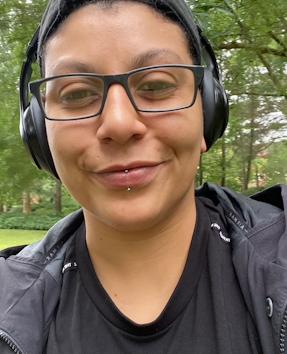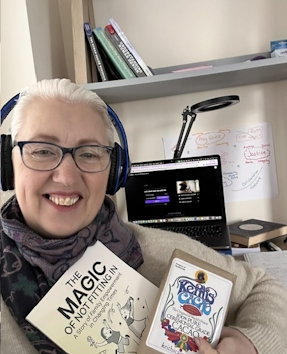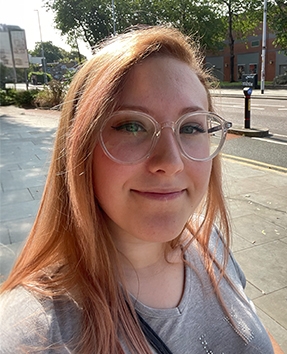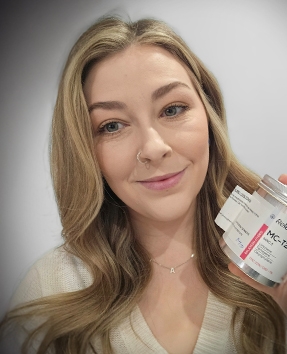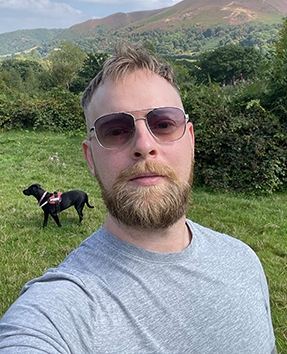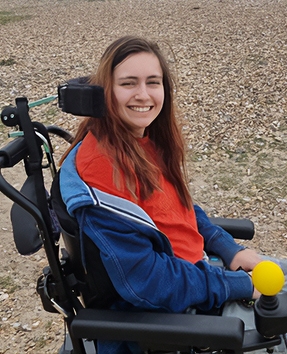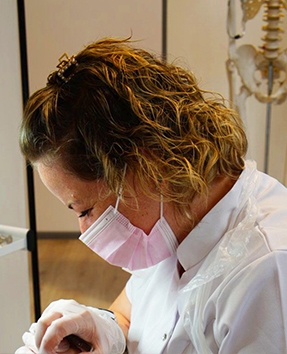Medical Cannabis for Sleeping Disorders
A restful night's sleep is essential for good health, yet 1 in 5 of us struggle to get the recommended 8 hours every night. Cannabis-based treatments may provide long-term relief for insomnia, narcolepsy and restless leg syndrome. These treatments have been available since on prescription since 2018, and Releaf’s doctors are here to work with you on a one-on-one basis to design a personalised and effective treatment plan, tailored to your needs.
Am I eligible?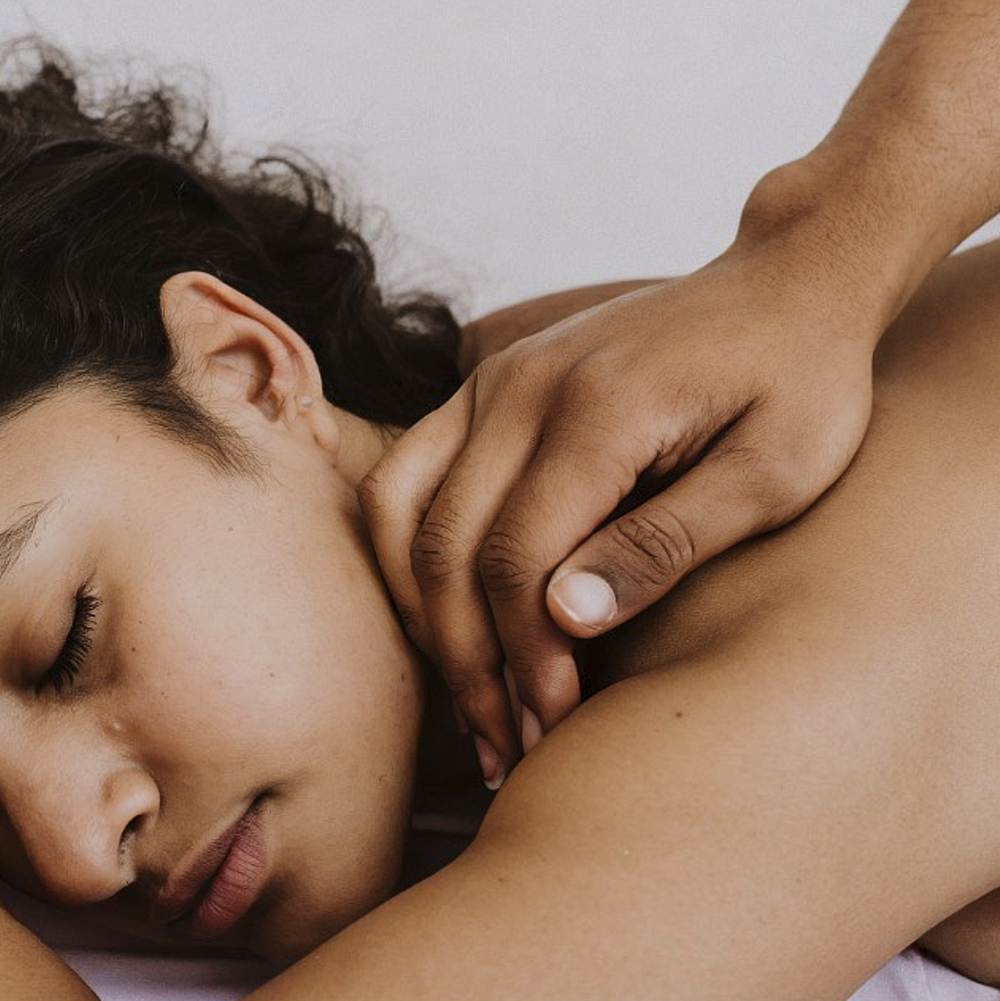
Sleeping Disorders
Sleep quality, timing, and duration can affect your relationships, work performance, and mental health. Yet most conventional sleep aids are only recommended for short-term use, leaving chronic sleep disorder sufferers without a long-term option. While holistic approaches, including mindfulness, relaxation techniques, and more recently, CBD oil, are becoming popular alternative options, cannabis-based treatments may offer a more effective remedy for severe sleep disorders.
How Can Cannabis-Based Treatments Help?
In low doses, THC can induce a sedative effect and help to reduce the time it takes to fall asleep, while also increasing sleep duration. Meanwhile, CBD can boost serotonin, alleviate stress and anxiety, and promote a relaxing bedtime routine, leading to better sleep. Since serotonin regulates sleep and is a precursor to melatonin, higher serotonin levels can help you to fall asleep more easily.
80%
improvement in quality of sleep reported using cannabis oil in a placebo-controlled trial
1 in 3
people are affected by insomnia in the UK, and 1 in 5 struggle to get enough sleep every night.
18%
Of UK adults are aware cannabis treatments can be prescribed for sleep disorders
60%
in a small-scale sleep study using cannabis oil were no longer classed as clinical insomniacs after treatment.
Articles on Sleeping disorders
22. 11. 2023
Sweet dreams, Sound health: Unraveling the secrets to better sleep
Earlier this month, Self Care Week was celebrated all over the UK - but we think its importance rings true all year round. That’s why we’ve launched our latest blog series: Wellness Wednesday; to take a look at alternative, natural and holistic approaches to improving our wellbeing.
22. 11. 2023
13. 07. 2023
The potential of medical cannabis for insomnia
We all have trouble sleeping from time to time. Restless nights are at least a semi-common occurrence for most people, but if you find yourself battling through weeks or months-long issues surrounding sleep, there may be more at play.
13. 07. 2023
12. 07. 2023
The potential benefits of cannabis for sleep apnoea treatment
It’s estimated that around one billion adults around the world suffer from sleep apnoea, which equates to around 1 in 7 of us, and yet the condition is seldom openly discussed. In fact, many people suffer from the condition without even knowing it, and this could be having an adverse effect on their health.
12. 07. 2023
22. 11. 2023
Sweet dreams, Sound health: Unraveling the secrets to better sleep
Earlier this month, Self Care Week was celebrated all over the UK - but we think its importance rings true all year round. That’s why we’ve launched our latest blog series: Wellness Wednesday; to take a look at alternative, natural and holistic approaches to improving our wellbeing.
22. 11. 2023
Lucy MacKinnon
13. 07. 2023
The potential of medical cannabis for insomnia
We all have trouble sleeping from time to time. Restless nights are at least a semi-common occurrence for most people, but if you find yourself battling through weeks or months-long issues surrounding sleep, there may be more at play.
13. 07. 2023
Sam North
12. 07. 2023
The potential benefits of cannabis for sleep apnoea treatment
It’s estimated that around one billion adults around the world suffer from sleep apnoea, which equates to around 1 in 7 of us, and yet the condition is seldom openly discussed. In fact, many people suffer from the condition without even knowing it, and this could be having an adverse effect on their health.
12. 07. 2023
Sam North
What our patients say about us
Kelly’s story: from pain and fatigue to rest and routine
Kelly’s world is rarely quiet. Between full-time work in the homeless service and a home shared with four dogs and a cat, she’s never short on responsibility. Read more
Condition Sleep Disorders
Subscriber a year
Darren’s story: The unexpected solution that transformed my sleep
After trying meditation, over-the-counter sleep aids, and natural supplements (unfortunately with no consistent results), Darren found himself stuck in a cycle of restless nights and groggy mornings. As a company director with a demanding job, two children, and wanting to maintain an already active lifestyle, the impact of chronic sleep deprivation was becoming increasingly difficult to handle. Read more
Condition Sleep Disorders
Subscriber 2 years
Matt’s story: Healing the mind and body after a life-changing plane crash
After a catastrophic plane crash shattered his shoulder, Matt’s entire life changed. Read more
Condition Sleep Disorders
Subscriber a year
Alistair’s story: Discovering the Life-Changing Impact of Medical Cannabis for Fibromyalgia and Chronic Pain
Alistair lived in a small village on the border of Nottinghamshire and Derbyshire and, until a few years ago, worked in senior management roles for large national companies. However, following a difficult journey with his health, which began following a motorcycle accident when he was just 17, Alistair relied heavily on codeine to manage his symptoms. Read more
Condition Pain
Subscriber 9 months
Anthony’s story: Making life work around irritable bowel syndrome
Anthony has lived with gastroenterological problems for 25 years, with symptoms significantly affecting his everyday life. Now retired and living in Cheshire, he has tried a range of prescription treatments, over-the-counter remedies, and restrictive diets to manage his symptoms, but nothing seemed to provide long-term relief. Read more
Condition Gastroenterological
Subscriber 8 months
Sonia’s story: Living a more functional life with medical cannabis for epilepsy
Sonia lives in Plymouth, Devon, with two of her children and her cat, accompanied by the occasional canine visitor who she looks after for friends. This, in addition to working nights in a factory, means that Sonia needs to be able to function effectively, which she feels she was unable to do when taking prescribed medications for her epilepsy. Read more
Condition Neurological
Subscriber 2 years
Alex’s story: Living with chronic pain and discovering a new lease of life
After suffering an injury a few years ago, which left him with chronic pain in his left arm, Alex had become disheartened by the lack of efficacy and side effects he had experienced with conventional pain medications. Working in trauma orthorpaedics, he had come across several people who had tried medical cannabis to manage their pain, and when a friend mentioned Releaf, he decided to explore the option for himself. Read more
Condition Pain
Subscriber 6 months
James’s story: Why I choose medical cannabis over painkillers
When you couple ligament damage with arthritis, the resulting inflammation and pain can be almost relentless. James felt it in both knees, every time he climbed the stairs, every time he knelt on a job, and even just when he tried to keep pace at work. Read more
Condition Pain
Subscriber 9 months
Phil’s story: Tackling depression and managing pain with medical cannabis
Phil Lofty, a veteran of 16 years with the Royal Signals, has struggled for many years with anxiety and depression, as well as chronic pain from arthritis and undergoing a knee replacement. Having initially dismissed the possibility of securing a medical cannabis prescription, he was relieved and surprised to discover the benefits that medical cannabis could offer him. Read more
Condition Psychiatric
Subscriber 7 months
Natalie’s story: Overcoming anxiety and PTSD with the “beauty of medical cannabis”
Natalie lives with complex post-traumatic stress disorder (C-PTSD) and an anxiety disorder, which, as for many people, worsened during the COVID-19 pandemic. Over the years, Natalie has tried several treatment options, which, while effective in lowering her anxiety levels, were often associated with intolerable side effects. Read more
Condition Psychiatric
Subscriber 7 months
Ryan’s story: Supporting cancer treatment with medical cannabis
Ryan works in a plastics manufacturing factory in Lincolnshire, where he is also co-parenting his son and daughter. Since recovering from an initial cancer diagnosis a few years ago, he has been able to enjoy golfing, going horse riding with his daughter, and go-karting with his son. Read more
Condition Cancer
Subscriber a year
Carol’s story: Managing fibromyalgia and chronic pain with the power of nature
Carol Hawkes has suffered from fibromyalgia and chronic pain since a traumatic surgery fifteen years ago. While she has been prescribed several types of medications to manage the pain, she was never able to find a solution that worked for her without impacting her life and well-being. Read more
Condition Pain
Subscriber a year
Shane’s story: From lifting in the gym to lifting pain with Releaf
For Shane, mental and physical fortitude have always been part of her life. She grew up in a family of weight trainers and competed in bodybuilding, which pushed her body to the limit. Read more
Condition Pain
Subscriber 7 months
Jackie’s story: Sleeping, swimming, and walking again thanks to prescribed cannabis oil for fibromyalgia
Some say that nurses make the worst patients, but for us Jackie has been a dream - and her very real transformation has been nothing short of remarkable. Now using prescribed medical cannabis oil to manage her fibromyalgia symptoms and restless leg syndrome, Jackie is able to enjoy the things she loves like long walks with dogs, and she has even been able to take up a new hobby: open water swimming. Read more
Condition Pain
Subscriber 7 months
Matt’s story: Managing Tourette’s, arthritis and anxiety with a Releaf prescription
Being diagnosed with Tourette’s in your 40s is not something any of us ever expect to face. For Matt, it arrived totally out of the blue during the isolation of COVID, reshaping his health, his work, the way he saw himself, and his ability to be comfortable in social situations. Added to the arthritis and anxiety he was already managing, it became a turning point that pushed him to explore alternative, holistic treatment options. Read more
Condition Neurological
Subscriber a year
Adrianne’s story: Gaining patience, balance, and energy while living with ADHD
Like many, Adrianne has lived with ADHD all her life, but the path towards an actual diagnosis was anything but straightforward, and only came a few years ago. Read more
Condition Neurological
Subscriber a year
Steven’s story: How medical cannabis helped battle PMR pain and walk freely
For Steven, Polymyalgia Rheumatica (PMR), fibromyalgia and a gout-like condition ensured every day was filled with pain. As a retired school teacher, business owner and former carer for his parents, Steven said he’d lived ‘a rich tapestry of various experiences’, but at 71 he found himself having to say goodbye to hobby after hobby. From DIY, to walking, to gardening, Steven found himself struggling to keep up with daily life, let alone with the things that made his heart sing. Read more
Condition Pain
Subscriber 8 months
Tory’s story: From policing to finding myself again with medical cannabis
Tory had always been able to manage with life’s hurdles and complications. As a long-serving police officer, she’d seen a lot, heard a lot, and felt a lot - but her mental health eventually started to falter during a painful divorce. Turning to her GP, Tory was prescribed antidepressants, but they left her feeling like it was impossible to connect with herself, let alone those who relied on her at work. Read more
Condition Psychiatric
Subscriber 10 months
John’s story: Why a retired doctor chose medical cannabis treatment
John is a retired medical doctor and pharmacist living in Leeds. Over the course of his long and varied career, he worked across the NHS and private sector, taught at two universities, and specialised in clinical research and clinical trials. Read more
Condition Psychiatric
Subscriber 9 months
Andy’s Story: Building better days with a Releaf medical cannabis prescription
Meet Andy, a long-term Releaf patient who has found positive health outcomes through medical cannabis treatment for not just his rheumatoid arthritis, but also found that it helped ease the complex set of health issues that followed. Read more
Condition Pain
Subscriber a year
Paul’s story: From stigma and fines to safety and peace of mind
Paul’s story is one of struggle, persistence, and eventual relief. A workplace accident left him with lasting damage to his back and leg. Surgery followed, but instead of recovery, he was left with constant pain that shaped every part of his life. Work became impossible, and the toll on his well-being grew heavier with time. Read more
Condition Pain
Subscriber 7 months
Hollie’s story: from backstreet cannabis to safe, legal, effective treatment with Releaf
After 5 years of chronic pain due to a major spinal injury and complications with surgery, Hollie faced a daily regimen of heavy painkillers that caused nothing short of horrible side effects. That was until she saw an advert for Releaf, and decided to see if medical cannabis could help. Read more
Condition Pain
Subscriber 9 months
Harry’s story: From slipped discs to working, walking, sport, and travelling again
Harry’s story begins with a work injury that changed everything. Three slipped disks in fact, an extremely debilitating injury which regularly resulted in him not being able to physically show up for his role as a substance abuse nurse, and also gave up the activities that once defined his week. Football, rugby, and gym sessions slipped out of reach, and with them came weight gain and a growing sense that life was shrinking. Read more
Condition Pain
Subscriber 10 months
Davids’ story: Healing childhood trauma with medical cannabis
Like many of us, and for most of his life, David has carried the effects of childhood trauma and heavy anxiety. After losing his father far too early, in an age when grief just wasn’t acknowledged or spoken about in the way it is in 2025, he was left to navigate the weight of that loss, to a certain extent, alone. Read more
Condition Psychiatric
Subscriber 9 months
Chris’ story: From post-polio pain to peace of mind with Releaf medical cannabis
When chronic pain is your baseline, it takes away so much and eventually shapes your entire sense of self. It’s not just the pain, but all those everyday losses that come with it. Read more
Condition Pain
Subscriber a year
Charles’ story: A soldier, a master builder, a dad - and now a medical cannabis success story
Charles is a master builder, a Royal Army veteran, and now a new dad living off-grid in Cornwall. He’s also one of a growing number of patients who no longer see cannabis through the lens of stigma, but as a considered part of looking after both body and mind. Read more
Condition Pain
Subscriber 10 months
Simon’s story: Migraines, misery, and the medicine that moved me forward
Simon’s life has always been shaped by sound. A musician (and later a DJ) since he was able to pick up a guitar, his passion for music led to a long career performing, teaching, and sharing music with others. Read more
Condition Pain
Subscriber a year
Lisa's story: The fight against fibromyalgia with medical cannabis
Battling a serious, long-term health issue (especially one that comes with intense, unpredictable pain) is hard enough on its own. But when it takes years to get an accurate diagnosis, and medical professionals lack a full understanding of how to test for or treat your condition, it can feel like a never-ending uphill battle. Read more
Condition Pain
Subscriber 2 years
Joe's story: The treatment that transformed my life
When Joe first considered medical cannabis, he was a little sceptical. He’d heard the stereotypes and misconceptions, and even though he’d tried cannabis in the past, he wasn’t sure if cannabis-based treatments were right for him, or, if they’d even work. Read more
Condition Pain
Subscriber 2 years
Matthew’s journey: A new approach to managing anxiety and depression
From a very young age, Matthew has struggled with his mental health. Traditional pharmaceutical options were prescribed to treat his anxiety and depression, but they were accompanied by side effects that left him feeling worse. Finding a long-term solution felt impossible. Read more
Condition Psychiatric
Subscriber 2 years
Peter’s story: How medical cannabis helps me manage daily life
For many adults on the spectrum, navigating daily life comes with unique challenges, from processing information to managing sensory overload. Peter, a Releaf patient since June 2024, has found that medical cannabis has helped him approach life with more patience and ease. Read more
Condition Neurological
Subscriber 2 years
Lukas’ story: Easing physical and psychological trauma with medical cannabis
Lukas’s journey with medical cannabis is a little different from most. A retired police officer, he began searching for an alternative treatment after finding little relief with conventional pharmaceuticals. Read more
Condition Neurological
Subscriber 2 years
Marlyse's story: Roller skating, resilience, and recovery - my journey with medical cannabis
Next in our series of patient stories, we meet Marlyse. Prior to arriving at Releaf, Marlyse had endured months of agony after a freak rollerskating accident left her with intense injuries. Although various conventional treatments such as opiates and even spinal surgery were prescribed and offered some relief, Marlyse’s pain continued to disrupt almost every facet of her day-to-day life. Read more
Condition Pain
Subscriber 2 years
Debs' story: After 40 years of nursing, medical cannabis helps manage MS.
As a career army nurse turned psychotherapist, Debs has dedicated decades of her life to the care of others. She’s seen her fair share of battles, but a few years ago she faced one of her toughest and most personal challenges yet: a diagnosis of multiple sclerosis. Read more
Condition Neurological
Subscriber 2 years
Scott's story: Sleeping through the night and taking back control
For almost a decade, Scott battled seemingly relentless neuralgia pain, cycling through ineffective medications with no real relief. Doctors prescribed antidepressants, blood pressure tablets, and other pharmaceuticals, all of which were promised to bring some semblance of peace to Scott's frayed nerves, but nothing worked. Read more
Condition Neurological
Subscriber a year
Gerard’s Story: From opioid dependence to effective relief with medical cannabis
Gerard's story is one of perseverance, determination, and an unwavering commitment to finding a solution that works for him. Despite facing a literal onslaught of health challenges, he never gave up and has now found a treatment that not only manages his symptoms effectively but adds to his overall quality of life. Read more
Condition Psychiatric
Subscriber a year
Jodie’s story: Natural solutions for menopause symptoms
Meet Jodie: a resilient Reiki Master Practitioner who courageously battled breast cancer a decade ago. Although her treatments with cancer medications and chemotherapy were successful, they also led to the discovery of other serious conditions like lupus, and triggered premature menopause, which she’s been dealing with ever since. For years, Jodie has suffered with chronic pain, anxiety and severe insomnia, usually only managing to get a few hours of sleep every night. Read more
Condition Neurological
Subscriber 2 years
Kim's story: From sceptical school teacher to medical cannabis advocate
Next in our continuing series of patient stories, we meet Kim, a retired art teacher who has been living with a painful spinal condition for nearly 40 years. Read more
Condition Pain
Subscriber 2 years
Louise’s story: Cancer, courage, and compassionate treatments.
For Louise, life changed forever in April 2022 when she discovered a lump on her chest. The next two and a half years were a whirlwind of doctor's appointments, surgeries, aggressive treatments, and a host of unexpected setbacks that affected not only her health and wellbeing, but also her wedding, which had to be postponed due to surgery complications. Read more
Condition Cancer
Subscriber 2 years
Kieran’s story: Tackling arthritis and breaking stigma
Living with arthritis since his late 20s, Kieran's journey to effective treatment has been anything but straightforward. From misdiagnoses and unhelpful medications to the daily pain that impacted his work and well-being, he struggled to find relief. Read more
Condition Pain
Subscriber 2 years
Isabelle’s story: A pathway to clarity and calm with medical cannabis
Isabelle’s story is a reminder of the complexity of the human experience, and a true testament to how, when given the right tools, overwhelming long term health challenges can quickly become manageable. Read more
Condition Psychiatric
Subscriber 2 years
Amber's story: Fighting chronic pain and insomnia with a personally tailored treatment plan
Amber is a mother of three who moved to the UK from Canada 14 years ago. Since she was a child, Amber faced a myriad of health challenges, including joint pain, stomach issues and insomnia linked to a chronic connective tissue disorder. Read more
Condition Pain
Subscriber a year
Jean’s Story: A life of purpose and service while living with MS
Jean’s story is one of quiet resilience, a testament to the human spirit’s capacity to adapt and thrive even amidst life’s unavoidable struggles. Read more
Condition Neurological
Subscriber a year
Eric’s story: Ending a 13-year battle with insomnia with medical cannabis
After a car accident triggered his Restless Leg Syndrome, Eric was trapped in a cycle of insomnia, fatigue, and frustration that affected every aspect of his life. Read more
Condition Pain
Subscriber a year
Jackie’s story: Persistence through pain and the power of medical cannabis
Jacqueline's health journey has been one of setbacks, surgeries, and ongoing struggles with arthritis and chronic pain, both of which contributed to mental health challenges. Read more
Condition Pain
Subscriber a year
Martin's story: Embracing medical cannabis to manage chronic pain
Living a healthy, active lifestyle has always been a top priority for the dad of four and full-time illustrator and printmaker, Martin. But due to the chronic pain from Ehlers–Danlos syndrome (EDS) and spinal arthritis, each day is a balancing act between managing his symptoms, pursuing his creative work, and getting all the other day to day stuff done. Read more
Condition Pain
Subscriber 2 years
Mary’s story: Living life to the fullest in her golden years
As more mainstream research shows the benefits of medical cannabis in treating chronic illness, the surrounding stigma in the UK is steadily declining. At Releaf, we’re seeing an increasingly diverse range of people of different ages, religions and ethnicities come through our doors looking for holistic solutions for chronic health issues. Read more
Condition Pain
Subscriber 2 years
Peter's Story: Opioids vs. medical cannabis for chronic pain — A paradigm shift
Like so many people in the UK looking for alternative treatments for chronic nerve pain, Peter wasn’t aware that medical cannabis had been available in the UK on prescription since 2018. For years, he suffered with trigeminal neuralgia, an excruciating nerve condition, until a chance encounter that led him to Releaf’s doors, where he connected with doctors who understood the complexity of his condition. Read more
Condition Neurological
Subscriber 2 years
Georgia's story: From misdiagnosis to managing ADHD
Misdiagnosed with anxiety and depression in her early teens, Georgia spent years on medications that she never felt quite addressed the root of her struggles. Read more
Condition Neurological
Subscriber 2 years
Ethan’s story: Reclaiming mobility after a work-related back injury
Ethan was an active hiker and mountain biker before a back injury robbed him of his mobility, making it hard for him to move around his home and perform simple, everyday tasks—let alone walk the trails of the Scottish Highlands. Read more
Condition Pain
Subscriber a year
Ollie's story: ADHD solutions for a father of three
Ollie is a 38-year-old father of three whose diagnosis with ADHD came only a year ago, sparking a profound reflection on the coping mechanisms he had adopted throughout his youth—most notably, his battle with alcoholism that led to a life-altering arrest for drink-driving at the age of 25 Read more
Condition Neurological
Subscriber a year
Hannah’s story: From pharmaceutical panic to plant-based positivity
At Releaf, we recognise just how much courage it takes to break free from social and societal norms and begin to advocate for your own healing. Read more
Condition Psychiatric
Subscriber 2 years
Elisei's story: A father turns to medical cannabis to heal from a work-related injury
Have you ever been forced to work through an injury? To just grin and bear it? This is a decision that thousands of people in the UK face every day. For so many of our patients suffering with chronic pain, taking months off work to heal from work injuries was never a realistic option. Read more
Condition Pain
Subscriber a year
Chaos’s Story: From Fibromyalgia Pain to Relief with Medical Cannabis
For years, Chaos has lived with the debilitating effects of anxiety, depression, and chronic pain. Fibromyalgia is only just starting to be properly recognised in the conventional medical community, even though it affects millions of people worldwide. Read more
Condition Pain
Subscriber 2 years
Maruis’s Story: Stability and Relief with Medical Cannabis Treatment
Maruis’s story is one of trauma, struggle, and resilience in the face of seemingly relentless health challenges. Diagnosed with PTSD, anxiety, and depression, along with osteoarthritis, he faced exhausting day-to-day battles, such as bouts of vivid night terrors and debilitating, life-limiting side effects from an exhaustive list of prescription drugs. Read more
Condition Psychiatric
Subscriber 2 years
Ben’s story: Freedom from pharmaceuticals with medical cannabis
Ben had been battling anxiety and depression for nearly two decades when, seven years ago, he was also diagnosed with fibromyalgia. Despite years of being prescribed pharmaceutical treatment options like SSRIs and opioids, he still felt weighed down by their side effects. Read more
Condition Psychiatric
Subscriber a year
Omar's story: How treating both mind and body led to IBS solutions
Omar, 31, is a theatre director who, for years, has battled chronic pain and discomfort due to Irritable Bowel Syndrome. His story is an important one, because it highlights the difference between the holistic approach to healing that Releaf provides, and the conventional one that focuses on physical symptoms. Read more
Condition Gastroenterological
Subscriber 2 years
Carla's Story: Music and medical cannabis: Regaining control after years of pain and anxiety
I've actually been on this journey since about 12 years old, when I first started getting my period. From my very first period, I experienced more than normal levels of pain, and I was bleeding throughout the month. Read more
Condition Gastroenterological
Subscriber 2 years
Thomas’ Story: Allowing himself the space to relax through the fog of anxiety
Most of us love nothing more than a bit of rest and relaxation. That feeling of letting everything go, and just being in the moment. But for 36-year-old Thomas, finding the mental space to relax can be a bit of an issue. Read more
Condition Psychiatric
Subscriber 2 years
Into the Woods: Ryan’s story of pain and perseverance
Ryan’s passion is the outdoors, and there’s nothing he loves more than a long hike through the forest with his trusty dog. For years, Ryan’s pain disconnected him from the natural world. Now, his recent treatment with medical cannabis is finally offering hope. Read more
Condition Pain
Subscriber 2 years
Maxim’s Story: A Path Through Chronic Pain
I’m Maxim, a 20-year-old from Haywards Heath, with a passion for sales. I’d say I’m a pretty outgoing, yet, ordinary person. I’m enthusiastic about work, and I love to be sociable and meet up with my friends or go out with my girlfriend, like most twenty-something's do. Read more
Condition Pain
Subscriber 2 years
James’ Story: Sleep Solutions - journeying back to calm and clarity
At Releaf, we are dedicated to providing safe, effective treatments that enhance the quality of life for those navigating chronic health conditions. James’ story is an important one, because it draws attention to one of the most common and debilitating conditions faced by many of our patients: severe, chronic insomnia. Read more
Condition Psychiatric
Subscriber 2 years
Coming into Focus: How a retired filmmaker found relief for his chronic pain without the use of opioids
The growing evidence of medical cannabis’ effectiveness in treating chronic pain is slowly reshaping how we approach health and wellness. However, many GPs in the UK are still quick to prescribe addictive medications like opioids and benzodiazepines before looking at safe, alternative solutions like medical cannabis. Read more
Condition Pain
Subscriber 2 years
Laura & Harry’s story: How medical cannabis changed Harry's life
For mum Laura, helping her son Harry through a number of health challenges has been a journey filled with ups and downs. Finding the correct diagnoses was a long and frustrating process, as has been managing Harry’s ongoing medical needs. Read more
Condition Neurological
Subscriber 2 years
Rhona's story: From chronic pain to finding strength for gardening and living
Rhona's story is one of resilience and determination. After years of battling through chronic pain and sleeping issues without being able to find a real diagnosis, Rhona was coming to the end of her rope. Read more
Condition Pain
Subscriber 2 years
Educating through experience: How Hollie uses medical cannabis to manage her chronic pain
One of our primary goals at Releaf is to remove the stigma associated with medicinal cannabis, and that’s why Hollie’s story is so important. Read more
Condition Pain
Subscriber 2 years
Josh’s story: Fighting back after a surgery gone wrong
Having your health taken away from you, through no fault of your own, is terrible - especially for someone so used to being extremely active. Read more
Condition Pain
Subscriber 2 years
For my kids: A proud dad’s battle against anxiety
Daryl is a young dad who suffers from anxiety and depression. For his kids, he knew he had to find a solution. After conventional medicines only made things worse, Daryl reached out to our clinicians at Releaf and began his journey with medical cannabis. Read more
Condition Psychiatric
Subscriber 2 years
Brandon's Comeback: influencer boxing and his fight against chronic anxiety
Brandon is a 27-year-old who has faced the challenges of anxiety, autism, Asperger's syndrome, and ADHD throughout his life. For many years, he felt isolated, and his conditions often prevented him from engaging in social circles and made him a target for bullying. Read more
Condition Psychiatric
Subscriber 2 years
Lauren’s Story: Freedom from anxiety and arrest
For far too many patients in the UK, finding legal treatment options that are effective and without the burden of heavy side effects can be difficult. To add to the struggle, navigating the complex healthcare and legal systems can often leave patients feeling lost and alone. Read more
Condition Psychiatric
Subscriber 2 years
Matt's Story: From curly kale to medical cannabis, how Michelin star chef Matt manages his MS
As humans, we like to learn from others because we feel inspired by them, because there is strength in numbers, and that’s something we’re naturally comforted by. And, at Releaf, sharing patient voices and their experiences with medical cannabis is something we’re committed to, for exactly these reasons. We want to champion our patient’s voices to diversity the conversation, covering all sorts of health conditions treatable with medical cannabis, by speaking to patients one on one about how their health, life, and overall wellbeing, has changed since becoming a Releaf patient. Read more
Condition Neurological
Subscriber 2 years
Daisy’s Story: Prejudice, professionalism, and PTSD
As human beings, it's part of our intrinsic, instinctual nature to learn from those around us, and to use the experiences others have had to help guide or inform our own. And in the world of medical cannabis, this is no different. Read more
Condition Psychiatric
Subscriber 2 years
You’ll be Supported By an Expert Medical Team
"Medical Cannabis has been shown to be an excellent treatment option for insomnia, as it can help to improve sleep quality by interacting with the body’s endocannabinoid system, which plays a role in regulating sleep and wake cycles. The two key plant chemicals contained in cannabis are Tetrahydrocannabinol (THC) and cannabidiol (CBD). When they enter the system, THC can have sedative effects that reduce the time it takes to fall asleep by promoting relaxation, while CBD exhibits calming and anxiolytic properties that help ease anxiety and stress, which are common contributors to sleep disturbances. Cannabis has also been noted for its pain-relieving and anti-inflammatory properties, which may help individuals suffering from chronic pain to achieve deeper, more restorative sleep."

Dr. Alex Van Heerden
Emergency Medicine

Common sleep disorder symptoms
Daytime fatigue
Difficult falling asleep
Difficult staying asleep
Difficulty concentrating
Excessive daytime sleepiness
Impaired memory
Irritability
Nightmares
Poor work performance
Restless legs
Sleep onset insomnia
Sleep paralysis
It's important to note that these symptoms are general and may not be exclusive to any specific sleeping disorder. Consulting with a healthcare professional is crucial for accurate diagnosis and tailored treatment plans based on individual needs.
























